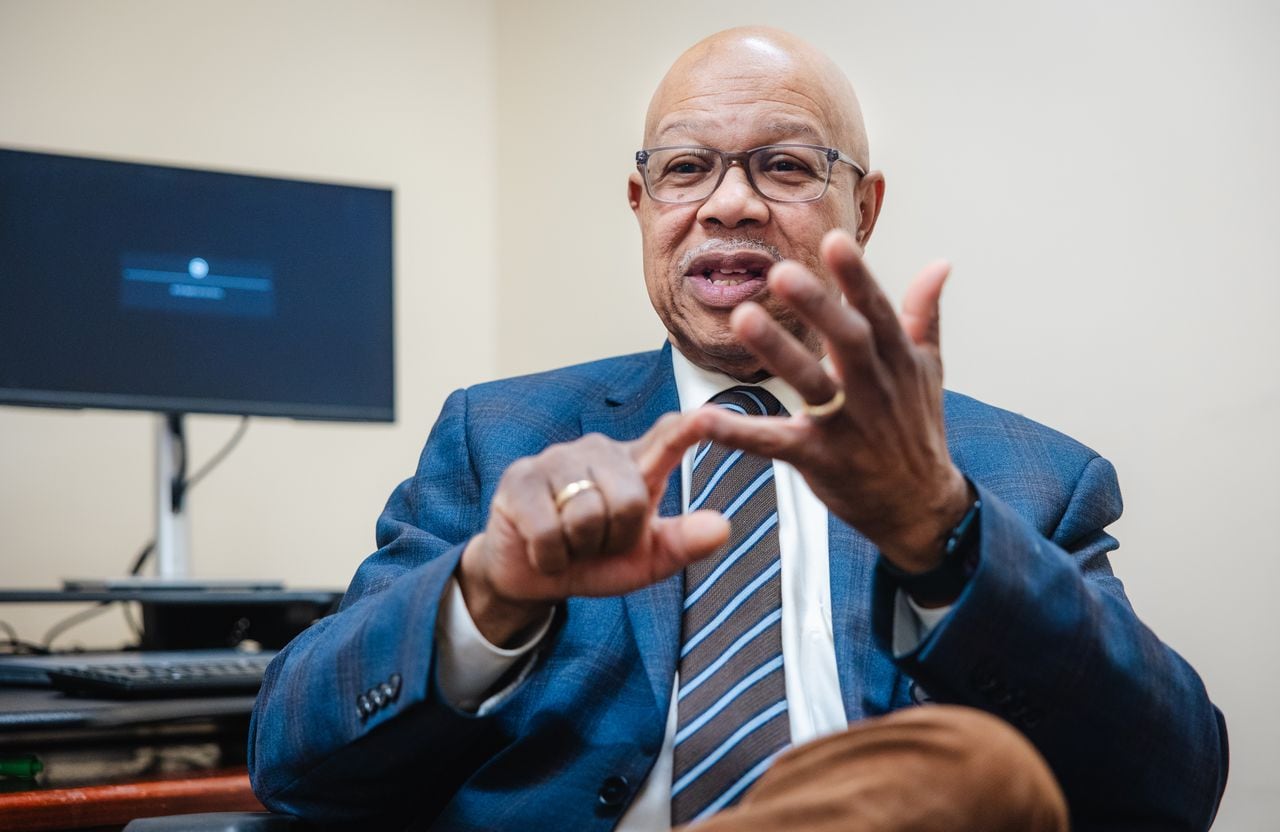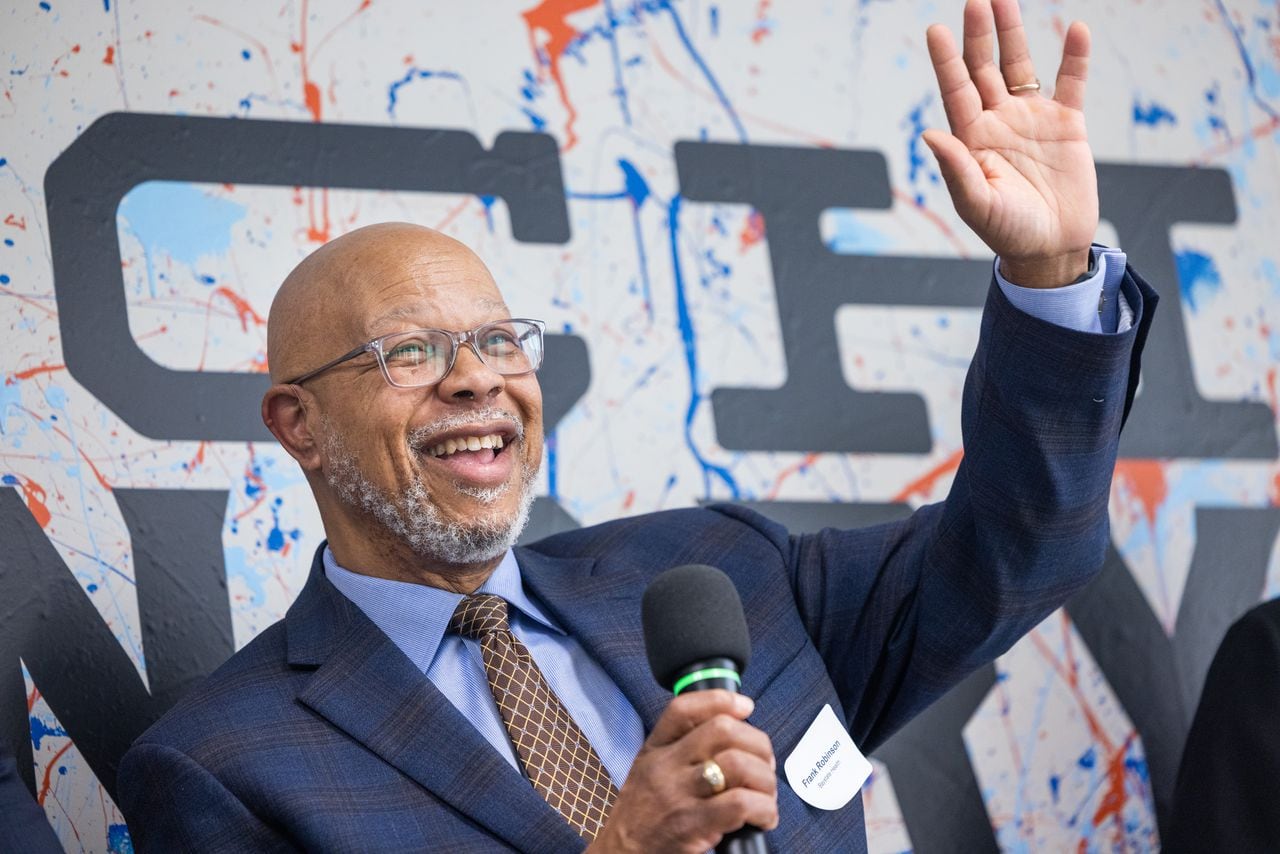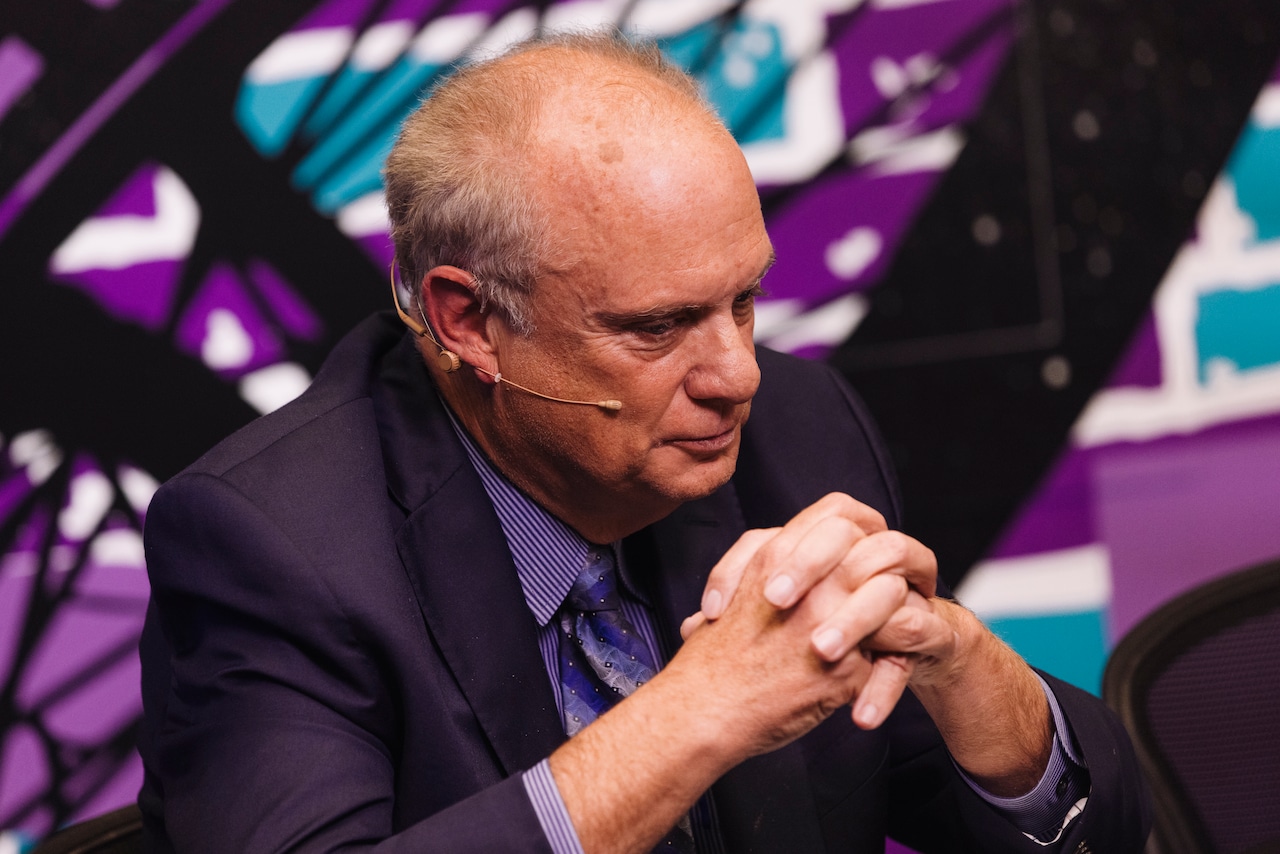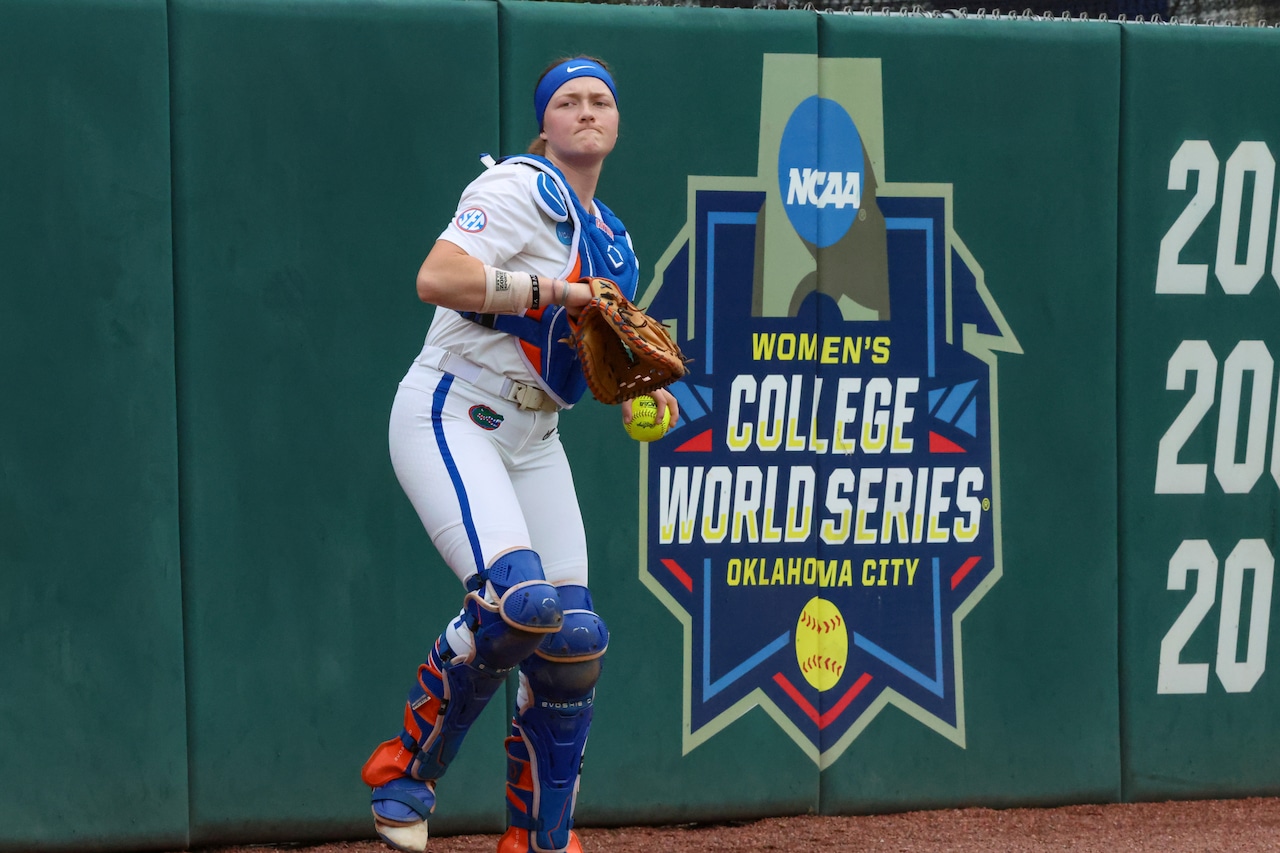SPRINGFIELD – The work Frank Robinson oversees from his desk at Baystate Health doesn’t sound that much like health care.
Job training, for instance. Steering more work to minority-owned small businesses. Developing jobs in downtrodden neighborhoods through the Anchor Collaborative. Improving education – as one of the founders of Baystate Academy Charter School.
And, most recently, expanding digital access through the Western Massachusetts Alliance For Digital Equity.
But all that affects public health, says Robinson, who retires at the end of January after 28 years with Baystate.
“It’s really social and economic drivers of health,” said Robinson. “Seventy to 80% of your health is determined by what happens outside of your body.”
Zip codes play a big role in personal health, said Robinson, who holds a doctorate in the subject and has worked for 48 years working in public health, including as executive director of Partners for a Healthier Community, now the Public Health Institute. His current job is vice president of public health for Baystate Health.
There is about a 14% difference in life expectancy between people living in East Longmeadow and West Springfield and people living in the Old Hill neighborhood of Springfield. That translates into a lost decade. Live a few miles in one direction and you can expect to live into your 80s. Live in a tougher neighborhood and you may not get out of your 70s.
“So If I can walk and exercise. If my streets are safe. There is a much greater likelihood that I won’t be involved in detrimental behaviors,” he said. Addressing issues that affect public health can be as simple has helping a neighborhood advocate for better lighting or sidewalks.
“I cannot celebrate Dr. Robinson enough for the impact he has had and continues to have as far as community public health is concerned,” said Helen Caulton-Harris, Springfield’s health and human services commissioner.
Making it better
Over the years, Robinson’s had a hand in co-founding the Baystate Academy Charter Public School in 2013 — a public junior and high school focusing on health careers — and in the establishment of the Baystate Springfield Educational Partnership at Baystate Health, which introduces students to health care careers.

Frank Robinson, vice president of public health at Baystate Health, discusses his career and upcoming retirement. (Hoang ‘Leon’ Nguyen / The Republican)Leon Nguyen
Robinson said students can receive additional training and certification as phlebotomists or surgical techs. “They do what I call the ‘200-hour interview.’ Students who come through that successfully often end up with jobs at Baystate.
Robinson helped establish the Anchor Collaborative, an effort to get the region’s “anchor” institutions, like Baystate Health, doing more trade with small, minority-owned businesses and hiring locally.
Richard K. Sullivan Jr., president of the Economic Development Council of Western Massachusetts, said those steps help provide paths to a living wage.
“And creating wealth within the minority community as an economic development strategy,” Sullivan said. “Having Frank there as a driving force has really moved that initiative forward.”
Robinson said Baystate spends a lot of money and employs 13,000 people.
“So we have phenomenal power. Economic power. Intellectual power,” he said. “We make decisions every day that influence not just the health care of our patients but impact our community,” Robinson said. “We could make a difference.”
Digital equity is a new element of public health and wellness. Robinson said he realized quickly in 2020 — as the world shifted to remote and online in the early pandemic — that people without high-speed internet access would be at a disadvantage.
“I asked the question, ‘How do our residents, low income residents, focus on resources? How are they going to connect to resources, since all resources have moved online?’” he said. “We then talked an awful lot about simple digital divide.”
Improved digital access
In 2023, Robinson led the charge for expansion of digital services within the region and was awarded a $5.1 million grant by the Massachusetts Broadband Institute to advance digital equity through digital literacy and connectivity.
It’s a four-county effort across Western Massachusetts. “We often don’t play well up and down the Valley, rural and urban,” “And Berkshire tends not ever to be included.”
One goal is “public space modernization,” which means funding better wi-fi in public spaces, such as a park, library, community center or community rooms in public housing. These gains improve access not only to health care but education, job applications and all the resources available online.
“He has really taken the helm on this,” Meredith Lewis, director of community impact & partnerships at the Community Foundation of Western Massachusetts, said of Robinson.
“He had to do a lot of education to help people understand how this fits in with equity. He’s helped us understand not just what it’s important, but the different lenses through which we can look at it,” Lewis said.
The foundation now asks the nonprofits it supports to consider digital access and equity as they develop programs and funding requests. “Because he helped us do that, we can help all the nonprofits that we support see how digital equity is woven into what they do as well,” Lewis said.

Frank Robinson, vice president for public health and community relations for Baystate Health, speaks at the Digital Equity Partnerships Program event at The Tech Foundry in Springfield in April 2023. (Hoang ‘Leon’ Nguyen / The Republican)
Lewis, who has been with the foundation for just under three years, was a little worried about where the digital equity work would go without Robinson. But at a recent meeting, he briefed project allies on progress and said he can be called for help.
Caulton-Harris, Springfield’s health and human services commissioner, said she’s already tapped Robinson to lead community discussions on the opioid epidemic and ways to fight it in Springfield.
After leaving Baystate, Robinson says he plans to stay in the area and will take on an increased role at Baystate Academy Charter School, working with junior high school students. His wife, longtime United Way head Dora D. Robinson, died in June.
Robinson, a former boxing coach who did youth development work starting in his hometown of Elmira, New York, laughs when someone suggests it’s a tough age.
“There are two opportunities for change, I think, substantial change, in the lives of young people,” Robinson said. “Ages zero to 5, where their neural nets are being laid out and all that stuff. And give them to me again in those middle school years. There are a lot of opportunities for change for a positive future.”






